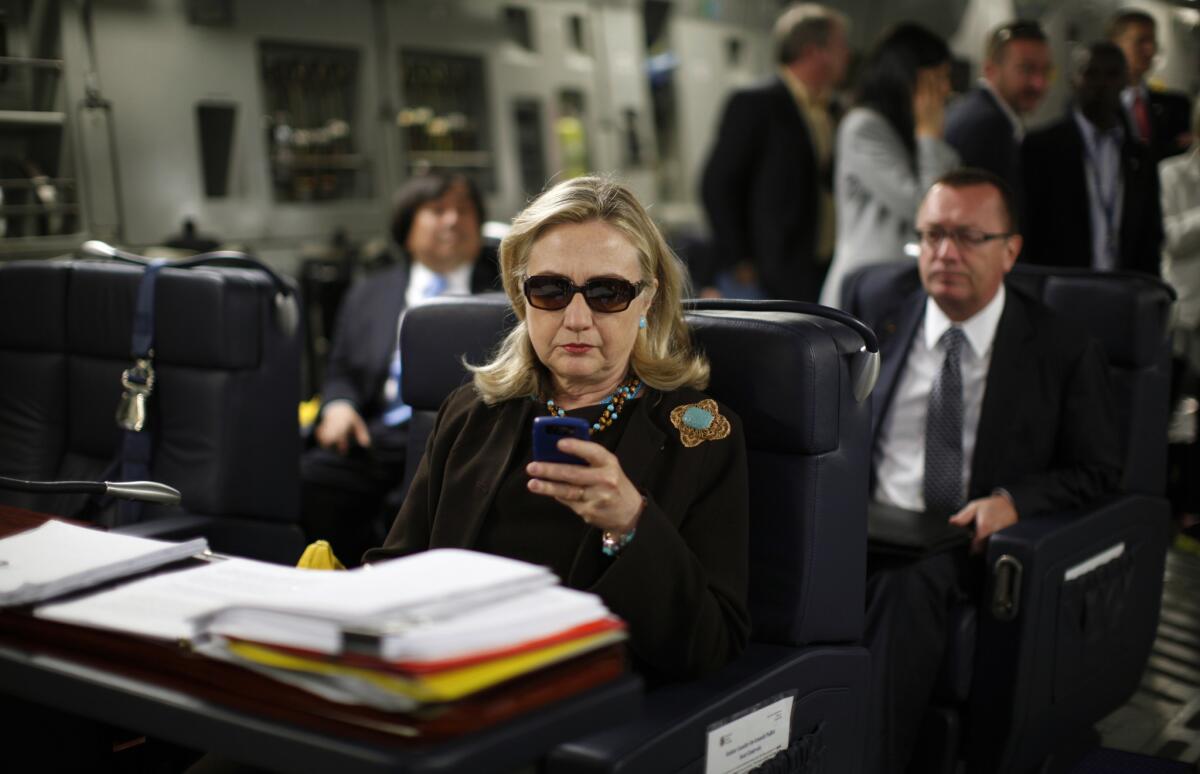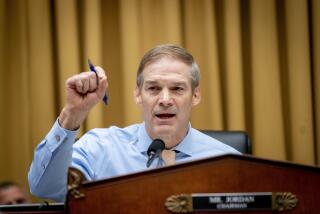Editorial: Clinton’s miscalculation on her private email account

The revelation that Hillary Rodham Clinton routinely used a private email account to transact business as secretary of State is disturbing. At a minimum, it complicated efforts by congressional investigators and citizens to lay hands on records to which they were entitled. It may also have jeopardized the security of information stored on an email server that lacked protections built into government systems.
It’s understandable that in emergencies public officials might communicate, even on official matters, through personal email. But for Clinton this was the rule, not the exception. She communicated with other U.S. officials and, presumably, with foreign leaders using a Clintonemail.com account maintained by a server linked to her home address in Chappaqua, N.Y.
Clinton’s defenders say that she is not the first official to have used personal email for government communications, and that’s true. But those precedents don’t excuse Clinton’s practice. Nor does the fact that emails she sent to colleagues and subordinates at their government email addresses would be automatically archived. Emails to people outside the U.S. government wouldn’t have been automatically preserved.
It’s also true that officials weren’t explicitly required to incorporate emails sent on private accounts into government records before the Federal Records Act was strengthened in 2014, after Clinton left office. But her actions certainly violated the spirit of the law as well as a 2011 assurance by a White House spokesman that administration officials “are definitely instructed that we need to conduct all of our work on our government accounts.”
Late last year, in response to a request from the State Department, Clinton turned over 50,000 pages of emails from Clintonemail.com. On Wednesday she tweeted: “I want the public to see my e-mail. I asked State to release them.” (On Thursday, CNN quoted a Clinton spokesperson who said that “anything that pertained to her work” at the State Department was turned over.) Better late than never, but this exercise in damage control would have been unnecessary if Clinton had used a government email account from the beginning of her tenure.
Why didn’t she? For Clinton’s critics, this practice is easily explained by what they see as her propensity to control information that might prove embarrassing if it came into the possession of what she once described as a “vast right-wing conspiracy.”
If that was Clinton’s intention, she badly miscalculated. The disclosure of her private email account is energizing her Republican critics, including members of a House committee that has been trying to breathe new life into the “scandal” over the killing of four Americans in Benghazi, Libya, in 2012. On Wednesday the panel issued a subpoena for any “private” emails related to Benghazi.
Clinton’s decision to use the back channel of a private email account was bad policy; it also may prove to be bad politics.
Follow the Opinion section on Twitter @latimesopinion and Facebook
More to Read
Sign up for Essential California
The most important California stories and recommendations in your inbox every morning.
You may occasionally receive promotional content from the Los Angeles Times.










